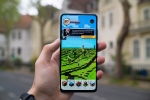
(In two contrasting interviewees from his book 'Essence of a Man: a study in male violence and the use of weapons', David Weeks presents a heartfelt exploration of two men's personal journeys through the world of male confrontations and violent conflict.)
The Graphic Designer and The Self Protection Expert
Backgrounds.
Daniel is a fifty year old white male; married with a son. Dan believes that his violent childhood experiences have had an on-going psychological effect upon both himself and his brothers. After his parents split up when he was young, Danny and his younger brothers and sister lived with their mother and her new husband in the 'rough' area of Holloway, North London. However, after a serious 'incident', Danny and his brother Gary moved to Hornchurch, Essex to live with their father; followed a few years later by their younger brother Martin.
The contrast of the relative peace and 'greenery' of Hornchurch – after the inner-city violence of Holloway - had a calming effect upon the teenage Danny. Upon leaving school he attended college; qualified as a Graphic Designer and had no further episodes of violence in his life until he was aged twenty. Then, an unwarranted attack upon him by a group of men outside a nightclub caused a marked change in Danny's psyche.
Although never an instigator of violence, Danny decided to never again be the 'victim' and became more-than-ready to react to the slightest provocation and, consequently, has been involved in numerous violent encounters over the ensuing years.
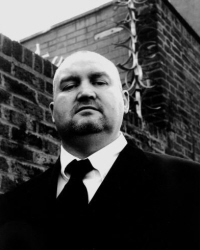 Jamie O'Keefe is also a 50 year-old white male; married to his third wife and with four children from his previous marriages. A bullied and abused childhood led Jamie to take up Martial Arts – [which he refers to as 'the fighting arts'] – and, eventually, he became recognised as one of Britain's premier self-defence instructors. His first book 'Dogs Don't Know Kung Fu' was a female guide to self-protection and was followed by 'Old School, New School', a book which examined the changing face of door-work and which reflected Jamie's own experiences as a doorman / bouncer.
Jamie O'Keefe is also a 50 year-old white male; married to his third wife and with four children from his previous marriages. A bullied and abused childhood led Jamie to take up Martial Arts – [which he refers to as 'the fighting arts'] – and, eventually, he became recognised as one of Britain's premier self-defence instructors. His first book 'Dogs Don't Know Kung Fu' was a female guide to self-protection and was followed by 'Old School, New School', a book which examined the changing face of door-work and which reflected Jamie's own experiences as a doorman / bouncer.His autobiography 'Thugs, Mugs and Violence' told the story of Jamie's violent life and was followed by several other titles before Jamie decided to give up door-work and concentrate upon developing his own publishing company – New Breed Publishing - which specialises in books and DVD's around the theme of self-defence.
The Interview:
David Weeks [DW]: "What is your earliest memory of violence / conflict?"
Danny: "My earliest memory of severe violence was when I was thirteen. This nutty woman from the flat downstairs come up and beat the shit out of my mother. I remember jumping on her back and her throwing me off and carrying on attacking my mum. She came back later that evening, with a couple of fellows and she chased my mother 'round the living room with a blade. My two-year old sister was there; it was a nightmare. A geezer was standing at the front door, stopping any of us from getting out. Alf – my step-dad – could handle himself – luckily – and he took this one geezer's eye out. Me and Gary were in our underpants; twelve o'clock at night; looking out of the window, thinking; 'Could we escape through the window?'
But when the bloke got a good hiding from Alf, the other guy came off the door and tried to help out and me and Gary run out and went 'round to some Greek friends and they tooled up and came back with us. The house was a crime-scene afterwards. We couldn't stay there. Alf lost nearly every hair on his head, where this woman had ripped his hair out. It was lucky that Alf could handle himself 'cause who knows what would have happened to us all if he hadn't fought them off. That incident definitely had an effect on me and Gary and we moved in with my dad shortly afterwards."

Jamie: "I think me being bullied as a child, for having Scottish and Irish parents; being bullied by the English kids, even though I'm English. We were poor and probably seen as Gypsy-like at the time; when there were still signs on Bed & Breakfasts, pubs, cafes, etc, saying: 'No Blacks, Irish or Dogs'. To the English, Irish immigrants were like the first blacks over here; even though I'm not Irish and I was actually born here. But that was all bullying rather than violence. I guess my first memory of real violence was by my step-father towards me and my mother...but I don't really want to go into that."
DW: "Who was a strong male role model to you, growing up and why?"
Danny: "A neighbour of mine in Hornchurch. He taught me how to play guitar; how to play chess; he gave me other interests in my life. The first time I ever went abroad was when he took me away with him and his son. Even though he was only about five foot tall, he was a really nice genuine guy and, at fourteen, he definitely influenced me."
Jamie: "As a teen, probably Bruce Lee and even more so David Carradine but, pre-teen, I don't really remember. David Carradine was my first real role model and he was just an actor, rather than a real fighter or Martial Artist but it's what his screen character Kwai Chang Caine represented." [Note: Caine was the central character in the ground-breaking 1970's TV series 'Kung Fu'; which was many British peoples first introduction to the Chinese Martial Arts.]
"I was so 'into' that character that I think I emulated him. I still think, to this day, that I talk in that slow thoughtful 'Caine way' and think about what I say before I say it. So it was the Carradine character really that I saw as my role model and the Bruce Lee thing was purely about his amazing physical ability. I still admire Lee's abilities to this day. I never managed to look, feel or even have a close resemblance to his skills but I did learn 'how to take care of myself'."
DW: "At what stage in your life did you feel confident in your ability to handle yourself in a violent situation?"
 Danny: "I went to Holloway County School, just behind Holloway prison and it was like, lawless. There was violence there; bullies and it just seemed like – compared to Hornchurch, say – that there were different laws governing parts of London.Kids turned up at school whenever they wanted to; teachers didn't seem to care. I remember a group of kids hung one teacher out of a window. Apparently, it's got worse 'round there now.People take the piss out of Essex but I think it's so much better to bring your kids up in a place like Hornchurch. The quality of life here; you're not all living stacked on top of each other; the greenery, etc. I know you get 'wrong uns' anywhere but you're less likely to encounter them around here. However, when I lived in Holloway, I didn't think about it. It was normal to me then; all the violence and fighting. I didn't know any different. However, the time when I got beaten outside the King's nightclub - [in Seven Kings, near Ilford] - when I was aged twenty, changed me.
Danny: "I went to Holloway County School, just behind Holloway prison and it was like, lawless. There was violence there; bullies and it just seemed like – compared to Hornchurch, say – that there were different laws governing parts of London.Kids turned up at school whenever they wanted to; teachers didn't seem to care. I remember a group of kids hung one teacher out of a window. Apparently, it's got worse 'round there now.People take the piss out of Essex but I think it's so much better to bring your kids up in a place like Hornchurch. The quality of life here; you're not all living stacked on top of each other; the greenery, etc. I know you get 'wrong uns' anywhere but you're less likely to encounter them around here. However, when I lived in Holloway, I didn't think about it. It was normal to me then; all the violence and fighting. I didn't know any different. However, the time when I got beaten outside the King's nightclub - [in Seven Kings, near Ilford] - when I was aged twenty, changed me.I was hit over the head with an iron bar and a bottle and it enraged me because the fight was nothing to do with me; I was just standing there when it 'kicked off'. I went back the next week with a bottle – well, it said 'returnable' on the label and so I was going to 'return the favour' [laughs] – but after that incident I had a real 'chip' on my shoulder and I was looking for trouble everywhere I went. I anticipated it happening to me. I remember having a fight and this geezer caught me on the chin and it should've floored me but it didn't and I thought; 'Fuck. If that's all he's got...' and I hit him back hard. You don't actually know how 'hard' you are until you take a good punch and put someone else on their arse and after I'd dropped him I felt more confident in my ability to fight. After I'd done it a few times, to different geezers and hadn't got damaged myself, I realised that I could punch and so I'd say it was my early twenties that I felt confident I could handle myself."
Jamie: "Probably at about 17 years old when I was a Mod; driving scooters; fighting for no reason at all. It was at that stage that I was also fighting men, rather than boys."
DW: "Was it important – growing up – to be seen as 'tough', or could you have proudly stated that you were interested in ballet, classical music, art, etc? Would you have been 'judged' / stereotyped by your peers?"
Danny: "I've never thought of myself as tough but I am 'old school', you know; 'manners cost nothing'. I respect people and I want people to show respect towards me. There are always people 'harder' than you but I sometimes think it's useful to have a bit of a reputation because blokes are wary of you. What upset me about that previous incident mentioned with my mother was that my granddad wouldn't talk to me afterwards. When that woman had come up earlier in the day and first attacked my mum, granddad asked me; 'Why the fuck didn't you get a knife out of the kitchen and stab her?'

It just wasn't in me to do something like that. I think you've got to be a certain type of person to be able to just grab a knife and stab someone but he wouldn't talk to me for at least a year afterwards. It really upset me. Now, I can see 'where he was coming from'. I don't think I'd ever say something like that to my own son but I actually think he was right; I should've protected my mum but, at the time, grabbing a knife wouldn't have entered my head."
Jamie: "At the time when I grew up, from the early 1960's through to the mid-'70's, it was good to be tough but it wasn't 'important'. You have to bear in mind that everyone was at a higher level of toughness back then compared to nowadays. That's just the way it was. I lived on Grindal House, on the Collingwood Estate, right behind the 'Blind Beggar' pub, which the Krays frequented. So, if that's the level of the locals in your pub, it gives you an idea as to how things were 'back in the day' in Bethnal Green. To sit outside the pub and chat to people like Ronnie and Reggie Kray was just a normal thing to the local kids. So, you would be laughed at if you were into ballet, dance or anything flamboyant. People were still going out 'queer bashing'. Honestly, that's how it was.
Even when I enrolled into the London Nautical School, which was a Naval Academy in London; where your school uniform was a full-on sailor's outfit, I got bullied for that. Sailors were tarnished with the label 'Queer Boys' for some reason but, strangely, sailors were also renowned for their fighting readiness."
DW: "Have you ever trained in a Martial Art / boxing / any other form of structured hand-to-hand combat training? If so, why and for how long?"
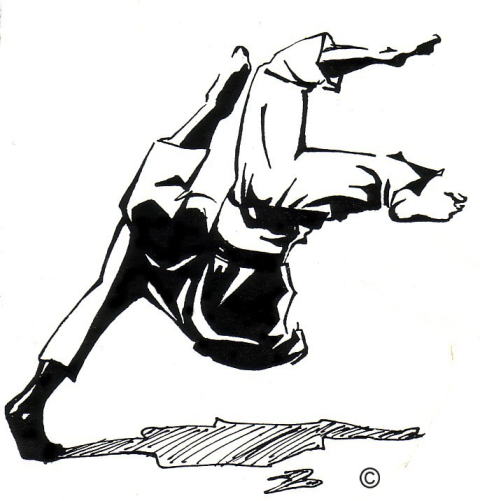 Danny: "No. Me and Gary, when we were about twelve-thirteen, went down to our local church hall where there was a Judo club and we sat down to watch and this huge bloke called a kid out of the line; picked him up and threw him around like a rag doll. Gary and I looked at each other and we stood up and walked out. [Laughs] It wasn't for us."
Danny: "No. Me and Gary, when we were about twelve-thirteen, went down to our local church hall where there was a Judo club and we sat down to watch and this huge bloke called a kid out of the line; picked him up and threw him around like a rag doll. Gary and I looked at each other and we stood up and walked out. [Laughs] It wasn't for us."Jamie: "I started in Judo when still at school then, over the next thirty years, I spent time studying practically every fighting art I came into contact with. I went from doing Judo at school in Stratford, East London; progressing through to training with Geoff Britton, when Full-Contact Karate first hit the UK. [Geoff was the drummer for Paul McCartney's Wings for awhile.]
I also got right into the Self-Protection thing and I was awarded my 5th Dan Black Belt from Geoff Thompson and Peter Consterdine about ten years ago and finally ended up with my 7th Dan and Master's Level in the Fighting Arts from Dave Turton; so I've 'put my time in' with some incredible people." [Note: Thompson, Consterdine and Turton are hugely respected practical 'street-self-defence' instructors and amongst Britain's most renowned Martial Artists and O'Keefe is accepted as one of their peers.] "Some arts I became very good at; others I found 'weren't for me' and some others I was rubbish at. I first took up the fighting arts to protect myself from my violent step-father but when I became good enough to use it effectively my step-father was too old and frail for me to use a physical response to him. I'm glad now that I never did, as I have seriously hurt some people over time and so I know how unstoppable I can be...so, yeah, I'm glad I don't have to carry that baggage of knowing that I'd been violent towards my step-father.. As much as he was a violent bully, he was still the only 'father figure' I had, so I had a love / hate relationship with him."
DW: "Did the training benefit you; physically, mentally or in helping you to deal with a real-life situation?"
Jamie: "I think all of the training I've done over the years has helped me in some way, even if it's just shown me what not to use because it won't work for me. I think mentally it's helped me more but in ways I never envisaged. For example, had I not ever trained in the fighting arts; if I was confronted with a physical encounter and backed off, I would feel like a coward and have to live with ridicule from friends and peers. This would hurt just as much as a physical fight. But now I know the fighting arts and with other people knowing I do, I could walk away from a fight offer and know I've done it through choice, because I know the outcome could lead to either of us leaving the scene in a police car, ambulance or with a sheet of death covering us. I don't want that; so I can happily walk away knowing what I've just prevented. That feels different to walking away feeling a coward."
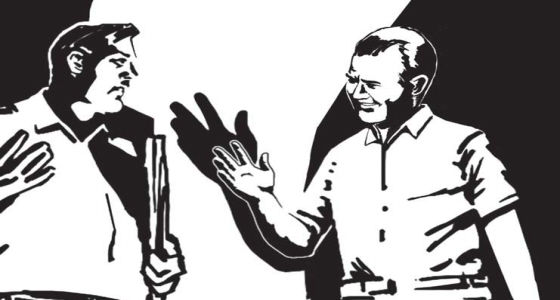
DW: "Are people 'born to fight' or is it a learned 'skill'?"
Danny: "I think it's both. I don't think I was a violent person when I was younger but, after that iron bar incident I definitely took a different path. It wasn't that I looked for trouble but I certainly wouldn't run away from it; I responded to it. I definitely think it's in your blood; it's somewhere in your DNA but different people react differently."
Jamie: "I don't think we are born to fight but we can be nurtured to do so by our environment. Dogs are a good example of this. A Staffordshire bull terrier that's not negatively nurtured in any way is the most loving family-suited dog ever and, if it's nurtured in a loving environment, it will embrace that. However, let some 'hoody' thugs who are into dog-fighting or having aggressive dogs train it, then the dog becomes a product of its environment."
DW: "Do you think that basic self-defence should be taught in schools and colleges, as a legitimate life skill?"
Danny: "Yea, it's not a bad idea. Like boxing, I think it would teach kids discipline, confidence and respect, not just self-defence. That's why Jack - [Danny's son] - does Wing Chun kung fu."
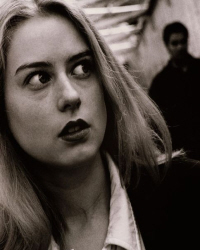 Jamie: "In girls' schools, YES. But not in boys schools. Females face a different threat to males. I think it would be abused in boys schools; although Judo in boys schools should be available. Judo is a very tough art and bullies wouldn't last long. You can hide away for a long time in the Martial Arts without getting 'sussed' but not in Judo."
Jamie: "In girls' schools, YES. But not in boys schools. Females face a different threat to males. I think it would be abused in boys schools; although Judo in boys schools should be available. Judo is a very tough art and bullies wouldn't last long. You can hide away for a long time in the Martial Arts without getting 'sussed' but not in Judo."DW: "Do you think that watching combat sports, such as boxing or Mixed Martial Arts contests, help rid spectators of pent-up aggression or do they make it worse?"
Danny: "A lot of people love watching boxing. I was talking to a bloke in the pub last week and he's seen a lot of the unlicensed boxing too; you know, the Lenny McLean-Roy Shaw type fights. Personally, I don't mind watching boxing under Queensbury Rules but I can't watch bare-knuckle fighting, it turns my stomach. Like this cage-fighting, I can't watch it; I'll turn the telly over; it does nothing for me."
Jamie: "I don't think it makes a difference either way."
DW: "How do you generally deal with conflict / verbal and physical aggression?"
Danny: "Like a bull to a red rag. [Laughs.] There are different degrees of reaction. If someone insults me, I can 'ride' that but if someone's blatantly 'digging me out', then I'd respond. Its self-respect, isn't it? The other week I was out with my mate Oz and three times this guy bumped into me at the bar. He was with a load of other blokes – all big, rugby-player types - and after the second time he'd bumped into me I said to one of his mates; 'Look, I know he's drunk but if he does it again...' Anyway, he bumped into me deliberately and I said; 'Right, let's go outside'. Ten seconds later I laid him out on the pavement. I didn't want to maim the guy or anything. I could've stamped on his head while he lay there but I don't want to hurt anyone like that; I just wanted to teach him a lesson."
Jamie: "With dissuasion and avoidance where possible. Violence, generally, for me is only a response if there is no alternative and I'm forced into it."
DW: "How do you control your fear, when faced with a threatening situation?"
Danny: "It's about courage. I think it takes a lot of courage to physically stand up to someone; you have to force yourself to do it, whereas with a lot of the villains out there, it's second-nature to them; it's nothing. With me, the adrenalin rises up and that's the worst part of it for me. I have to get straight in there, at that point, or the adrenalin will build up and I'll lose. I have to get it over-and-done-with. So, the way that I handle fear is to bypass it."
Jamie: "I can't really control it; only manage it better than I did as a kid. Not that age has got anything to do with it. The only thing I can honestly say is that as I learn more about other people and situations, I fear less but the fear is still there, to a degree. However, having a certain amount of confidence in my own survival ability, I now know not to fear many of the things I previously didn't understand in life."
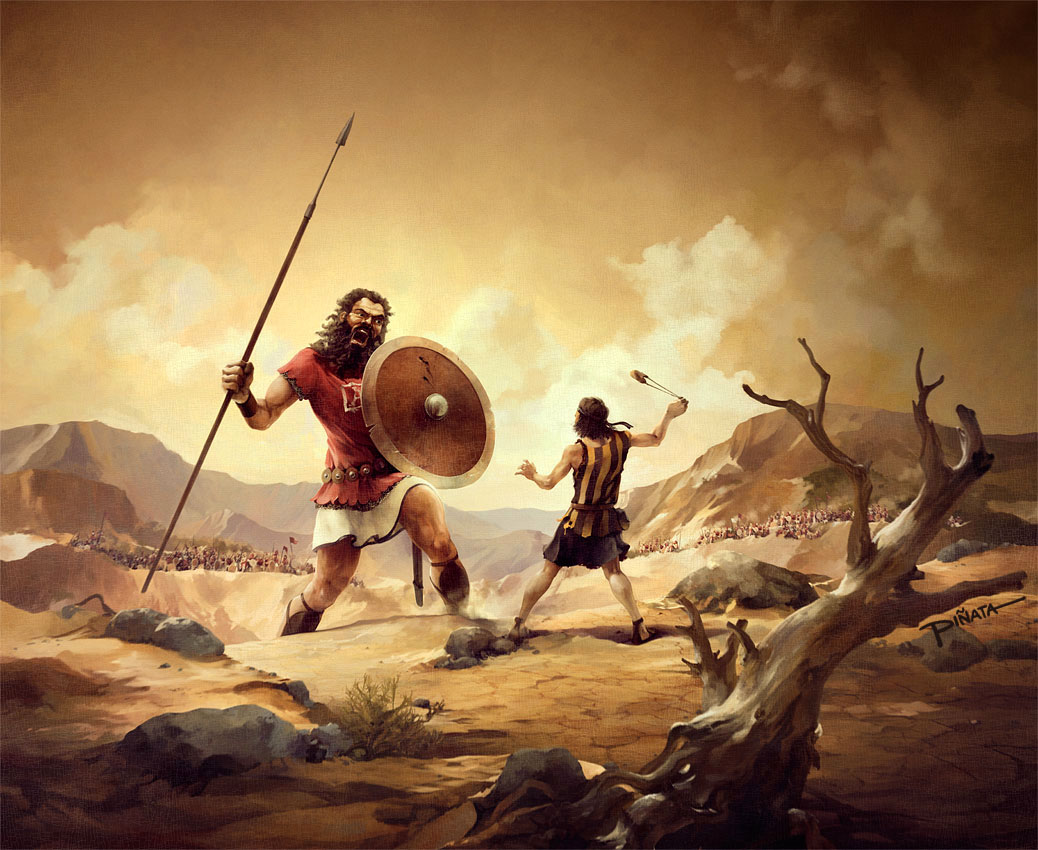
DW: "Has alcohol or drugs ever affected your interactions with others, in a negative or violent way?"
Danny: "[Laughs]. Yea, especially with the wife. The other week I ended up in Leigh-On-Sea, where I'd had too much to drink and fallen asleep on the train and missed my stop. I woke up freezing cold, to the sound of seagulls. I thought I'd get a bit of sympathy from Lisa but she had a go at me for being so pissed. I'd done it once-too-often, for her liking. They say you get 'happy drunks' and 'aggressive drunks' but, in my experience, most people are aggressive drunks. As I've got older I try to tell myself, when I go out drinking; 'Don't get into a fight' but it doesn't always work."
Jamie: "I've never knowingly touched drugs but I've had drinks 'spiked' before. I don't drink alcohol anymore; gave up about ten years ago. I was a 'mouthy', arrogant twat on booze and I offended many people but I was always prepared to back it up. I was a total arsehole and I feel ashamed now of how I acted."
DW: "Is swearing a form of violence / aggression? What's your view on the use of swear words?"
Danny: "It depends on how it's said. Even the 'C' word – which I hate – can seem almost endearing if you say it to a mate jokingly. But, if it's said with a menacing tone, then it's different. So, it's all down to tone of voice. The actual words are woven into our language now; it's on the telly every day; it's everywhere but Jack doesn't swear in front of me and I don't swear in front of my dad. It's about respect."
Jamie: "It depends on the context in which it's said; the environment, situation and intent.Swearing can be used and is used as a form of 'expressing' violence."
DW: "Do you believe that movies / rap lyrics / computer games, etc, incite violence in some people, or are those people likely to commit violent crimes anyway?"
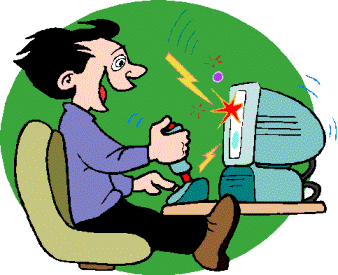 Danny: "Yes. We let Jack play certain computer games because I trust him to know the difference between reality and unreality. You know your own kids, don't you? But I do think that certain kids are affected by computer games and rap lyrics. These kids on the buses, who refuse to use their headphones, so the whole bus has to listen to the rap music. They sit there, nodding aggressively to the beat and 'looking hard'; it's like the music is the rhythm to their lives; it's giving them a certain attitude. It's in the way they walk. A lot of the lyrics are about respect but if you listen to some of the lyrics it's about shooting people to get respect."
Danny: "Yes. We let Jack play certain computer games because I trust him to know the difference between reality and unreality. You know your own kids, don't you? But I do think that certain kids are affected by computer games and rap lyrics. These kids on the buses, who refuse to use their headphones, so the whole bus has to listen to the rap music. They sit there, nodding aggressively to the beat and 'looking hard'; it's like the music is the rhythm to their lives; it's giving them a certain attitude. It's in the way they walk. A lot of the lyrics are about respect but if you listen to some of the lyrics it's about shooting people to get respect."Jamie: "I think the Americanised 'Gangster Rap' thug culture has a lot to answer for but doesn't make people do anything. It gives a sense of 'belonging' to street kids and hope of 'finding a way out'. Marshall Mathers, aka Eminem is a great example of a trailer park kid who not only broke into the black ghetto music scene but was a white boy who wasn't a 'gangster' by any means and became the best-selling artist in that black-dominated environment. It matters not whether you like his music; I just admire what he has achieved. It gave hope to millions of kids. Computer games and music will only highlight what kids are doing anyway. I don't think kids are going to go out and kill in masses just because of games or music. It's things in their environment that makes them 'switch'; otherwise kids in their thousands would be out there killing, raping and all the rest of the things which 'right-minded' people would find unacceptable.
The only negative thing I think about rap music or some games is that it encourages certain attitudes with regards to being derogatory towards females, whilst generally tolerating or promoting drugs, violence towards females and gays, use of guns, etc. Punk was a great musical movement because it also gave kids a 'way out' and a chance to do something with their lives but it didn't encourage others to sell drugs or beat up women and gays. Punk was very important in my life and didn't make me 'bad'."
DW: "Do young people today possess a relative lack of morality, in comparison to previous generations, regarding the willingness to shoot or stab their peers?"
Danny: "I think a lot more kids are disrespectful. Don't get me wrong, I think there are a lot of kids out there who do respect people but the problem is it's the ones who lack respect who are the loudest and so they're the ones you take notice of. If I'm ever in the unfortunate position of having to get a seat on the top deck of a bus, that's a nightmare. The kids are wild. It's our fault, 'cause we're the fathers of this generation. I think it's because we've gone too far down the; 'Let kids express themselves' route. 'Oh, he's got spirit; it should be encouraged'. We're scared now to reprimand them. Apparently, you're not even allowed to smack your own kids now. I don't think you should smash them over the back of the head but a firm tap now and then is needed.
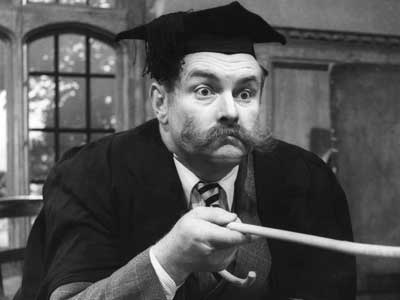
Having said that, I've never hit Jack but he knows when I'm serious about something, from the tone of my voice and that's always been enough. I think that's how it should be; you should be able to reprimand your own children. It's down to the parents."
Jamie: "Within gang culture or booze / drug enhanced states definitely. Watch a film like 'London Boulevard' and it shows this. Great film. I think a lot of this change is because kids don't really fight these days; like we did 'back in the day'."
DW: "Man has always been territorial but why do you think it's been taken to extremes, regarding certain streets being 'no go' areas for youths?"
Danny: "It's a gang thing. A lot of these kids are from broken homes and the gang's like a family to them; they all look after each other. It's a sense of belonging; friendship and it's also the pack instinct that makes them stick together and fight other 'packs'. Also, I think drugs play a large part in these incidents. People are running drugs from one area to another and that's where the postcode thing comes in. It's definitely an inner-city thing; you don't get it around here. I think the Old Bill could clear it up. I'm sure they know who these people are."
Jamie: "I think that this is mainly because there is no 'street presence' of police anymore. There is nobody to stop things in its tracks or to stop gangs developing. This country is a joke when it comes to dealing with street gangs, thugs, drug sellers, petty criminals...They all need proper 'sorting out'; whatever that may be. It pisses me off that the elderly are frightened to walk down the street through fear of being robbed. People on housing estates get terrorised. It makes me sick."
DW: "Have you ever been affiliated to a gang? Why do you think people gravitate towards gangs?"
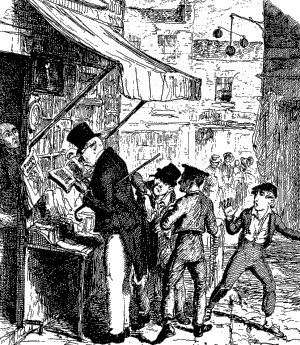 Danny: "I haven't personally but my brother Martin has. Again, that was all about 'belonging'. I left school and went to college and my social life was mixing with fellow students, who all had a degree of intelligence but with Martin...he was from a broken home; his two older brothers moved away from him; he didn't attend school for two years and then he finally found solace and a sense of belonging with his scooter gang mates. He's got the tattoo from those days and he's got that history; it's not just about the fighting, it was about the music too and he's still in touch with some of these people today. I chose a different path. I went to Art College but I can see why Martin was attracted to a gang."
Danny: "I haven't personally but my brother Martin has. Again, that was all about 'belonging'. I left school and went to college and my social life was mixing with fellow students, who all had a degree of intelligence but with Martin...he was from a broken home; his two older brothers moved away from him; he didn't attend school for two years and then he finally found solace and a sense of belonging with his scooter gang mates. He's got the tattoo from those days and he's got that history; it's not just about the fighting, it was about the music too and he's still in touch with some of these people today. I chose a different path. I went to Art College but I can see why Martin was attracted to a gang."Jamie: "Yes, I have. I was part of a Mod gang or group of youths, known as 'the Glory Boys'. It was in the late 1970's and they were very violent. It's all bullshit now, when I look back but, you asked the question. If you can imagine getting together a gang of violent football thugs and dressing them up like Mods; sending them into a music venue, where hundreds of others – from all over the country – wanted to fight them, behind locked doors...well, that's what we were...and that's when I started fighting men, as well as boys, because the bouncers would always slap the young kids about. But we were different. We were mostly East End boys; many were good street-fighters, boxers and many were also West Ham's 'Inter-City firm'." [Note: The notorious football hooligans, who followed West Ham United and were known simply as the I.C.F.] "So, we were pretty 'handy' but I can honestly say that we only ever fought those who were 'up for a fight', not innocent people. My only connection with them was that I grew up with these people. I have no interest in either football or 'footy' violence. I think most people just want to belong to some form of group. Religion didn't do it for me but Mod clothing style and music did. Yet, they're both 'gangs' of a sort."
DW: "Why are young men fascinated by knives?"
Danny: "Because they're accessible and it gives them power. It's got out of control, though. Fifty years ago, if you took a life you hanged. Now, it's twelve years, with time off for good behaviour. I think a lot of these fourteen, fifteen year olds just don't understand the consequences. They're only living for today. It's myopic. They don't see their whole life in front of them; they're just 'in the moment'."
Jamie: "Because they're scary and it could be the last thing we ever see or feel, if used against us. It doesn't take any skill with a knife to cause harm and that's something that the fighting arts have failed to deal with 'empty-handed'. I've spent over thirty years in the fighting arts and have had many people tell me that they can deal with knife attacks but they're kidding themselves. There isn't a person on this Earth that I couldn't 'take out' with a knife; I don't care how good they think they are. It's not just knives that are dangerous; it's any edged weapon, from a beer glass in the face to a flattened drinks can, that you see on many a road."
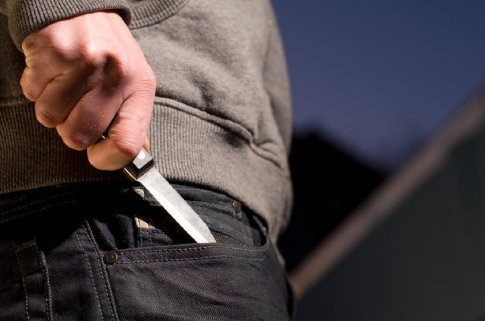
DW: "Have you ever used a weapon against someone? Has someone ever used a weapon against you?"
Danny: "I've carried a blade on me a couple of times but that was just for protection. I had a guy pull a knife on me on a train, about ten years ago. Three guys were attempting to rob this bloke on the train and I went over to help him out. One guy turned to me and held the knife out in front of him and I put my hand inside my jacket pocket and pretended that I had a knife myself and said to him; 'Come on then'. The bluff worked and he backed off. [Laughs.] Don't know what I'd've done if he'd attacked me with it. More recently I had an incident in the local pub. There were two guys; one of them is alright but the other's a pain in the arse when he's pissed. The landlady asked him to leave but he wouldn't and so I said; 'Come on, mate, why don't you go?' He turned to me and asked; 'Who the fucking hell do you think you are? Come on. Outside.' I thought; 'Yea, I'll have some of that' but because there were two of them I picked up a bottle from the bar and put it in my coat pocket. When I got outside I pulled the bottle out but I dropped it. It smashed on the floor but I quickly picked up the broken end and held it against his throat. It's a 'stand-off' now. There are two of them but I've got the bottle against his throat and so they backed down. Would I have cut his throat? No, but he doesn't know that and he still thinks that I would've cut his throat open. Over an argument? No way, but I'd've punched him out. He's absolutely terrified of me now. Great."
Jamie: "Yeah, both but I prefer not to go into it. One thing I can say is that one guy used his teeth as a weapon against me once. He dragged his teeth right across my skull, causing a skin tear, bleeding, etc. I had to go to East Ham hospital and have AIDS medication for a month, to help prevent any risk from cross-contamination. He was a drug-user, on day-release from prison, who was out for a funeral and we crossed paths. I was simply in the wrong place, on the wrong day; nothing more to it than that."
DW: "Do you believe that you could kill someone in a confrontation? Would prison ever be a deterrent to your doing so?"
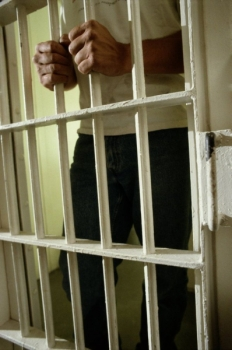 Danny: "I've always worried about prison. They say; 'If you can't do the time, don't do the crime' and that has always been the biggest deterrent for me. Three years of not bending over in the showers to pick up the soap; no thank you. [Laughs.] I've got a few mates who've done time and though it's not as bad as some people say ...even so – when you hear some of the stories they tell you – it's frightening. Also, who's going to pay my mortgage whilst I'm 'away'; what's your kid going to think of you...you know? But, when you're fighting someone – although I'd never want to put someone in their grave – you do want to put them on their arse and accidents can happen if they hit their head. Like I said, I could've stamped on that geezer's head the other week but I don't want to brain-damage someone just because they're a wanker. Also, I don't want to do fifteen years over them; so prison is a big deterrent for me."
Danny: "I've always worried about prison. They say; 'If you can't do the time, don't do the crime' and that has always been the biggest deterrent for me. Three years of not bending over in the showers to pick up the soap; no thank you. [Laughs.] I've got a few mates who've done time and though it's not as bad as some people say ...even so – when you hear some of the stories they tell you – it's frightening. Also, who's going to pay my mortgage whilst I'm 'away'; what's your kid going to think of you...you know? But, when you're fighting someone – although I'd never want to put someone in their grave – you do want to put them on their arse and accidents can happen if they hit their head. Like I said, I could've stamped on that geezer's head the other week but I don't want to brain-damage someone just because they're a wanker. Also, I don't want to do fifteen years over them; so prison is a big deterrent for me."Jamie: "Yes, I could and prison has stopped me from doing so but, for the 'right reasons', prison would not deter me."
DW: "Would a person's reputation prohibit you from confronting them?"
Danny: "I went through a spell when I was younger – especially when I was at school - when a person's reputation would definitely deter me. Then I reached that age where I thought I was invincible and no-one worried me but, now that I'm older, I'm more wary. There's a guy I know – fortunately, I get on with him – but I've seen what he can do and I'd be wary of confronting him. Luckily, he respects me but, years ago, I wouldn't have cared who you were; today, I'd think about your reputation.
I don't think it's that I've mellowed; in fact, I get annoyed more easily these days. People just have no manners; there are so many arseholes out there but, then again, the girls call Gary, Martin and I the Self-Righteous Brothers – [laughs] – and so maybe I just over-react."
Jamie: "Yes but, if I needed to 'sort them out' for some reason, I still would. They'd only know about it when it's over. I don't want to confront anybody or be in any situation where I'm having to use violence – even as a threat – so, if I'm in that position, it means I've been forced along that path. I will resolve it, whether I 'confront' them or not."
DW: "Could you tell a dangerous person, merely by appraising their physicality / body language?"
Danny: "Yea, absolutely. Not only that; I could tell you when it's about to 'go off'. You develop a kind of sixth sense for these things after awhile. If I'm in a pub I can tell you when someone's about to make a move."
Jamie: "No, but some people carry an aura about them that makes you aware that they could be a handful. A physical display, for me, just shows insecurity in a person's faith in their own ability. They show their proverbial feathers like a peacock, or beat their chests like a gorilla but it doesn't mean shit...unless you're a peacock or gorilla.
I'm probably a good example of 'looks mean nothing'. I'm a 5 foot 9 inch, seventeen stone 'fatty' and a fifty-year old granddad. So, will my fighting capabilities be any different if I wear a girdle, put on platform shoes and pretend to be only thirty-five years old?"
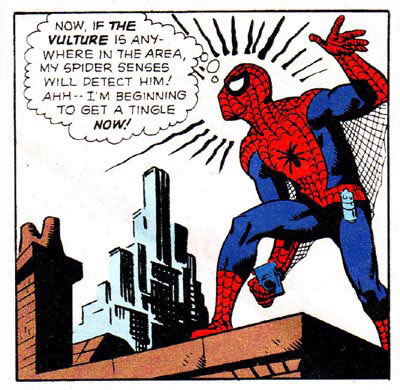
DW: "Have you ever had an altercation / conflict over race or religion?"
Danny: "No." [Author's Note: See Question 'Can you give an example of extreme violence...']
Jamie: "Not that I can think of. I make it a point not to discuss sport, politics or religion these days and that seems to keep me out of trouble."
DW: "What – if anything – intimidates you? [Wealth, power, fame, reputation, etc.]"
Danny: "Nothing really. I'm very self-confident and so people with wealth, fame, whatever, don't intimidate me. Nothing's ever really intimidated me, although I must admit...as I've got older, I've become forgetful and that's caused a few problems at work. When I was younger I could stand up in front of clients and rattle off a presentation but, recently, I've had moments where I've had to stop and think about what to say next. Then I'll see one of the young guys get up and race straight through the presentation and that intimidates me a little; the fact that age has robbed me of some of that dynamism.[Laughs.] It's as if someone's placed a breeze-block in my brain. All the information is in the back of my mind but it can't get through to the front because the 'breeze-block' is in the way."
Jamie: "The fear of not being in control of an outcome that could be detrimental to my family. That's one of the main reasons I refuse to drink alcohol anymore, because it takes away my ability to think logically and control my actions."
DW: "Nature or nurture? Genetics or environment? What's made you the person you are today?"
Danny: "A bit of both. I can see traits in myself that I see in my dad and in my granddad and so that's obviously genetic but I think my environment's played a big part in 'who I am'.My early years in Holloway and the violence that surrounded me there made me a different person and gave me a different outlook on life than when I moved to Hornchurch. Living in Hornchurch mellowed me. [Laughs.] Obviously not completely. But my environment definitely influenced my life."
Jamie: "Both, because I'm a product of more than one environment and bloodline."
DW: "Would you cry in front of your male friends?"
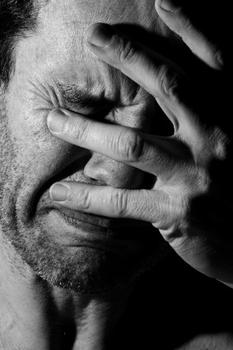 Danny: "I'd try my best not to. It's embarrassing. I'm not a believer in the saying that 'you should be able to cry in front of your friends'."
Danny: "I'd try my best not to. It's embarrassing. I'm not a believer in the saying that 'you should be able to cry in front of your friends'."Jamie: "No. I've only cried a few times as an adult and that's through bereavement, so I've not had any friends around me at the time. I don't see anything wrong in doing it but...it's not for me."
DW: "Do you ever tell people important to you that you 'love' them?"
Danny: "I tend to tell them that I 'like' them. I let my friends know that they're important to me but I don't use the word 'love'."
Jamie: "Rarely, but they know I do. In the environment I grew up in, those were not words that were used too often."
DW: "What makes you happy?"
Danny: "Stability. If work's going well and my relationship with Lisa's going well and Jack's doing okay and the bills are being paid, I feel content. That feeling of contentment is what I consider to be happiness."
Jamie: "Seeing my wife and children happy."
DW: "What's the most frightening confrontation you've ever had?"
Danny: "The incident with my mother that I mentioned earlier, when I was thirteen. It took me a long time to get over that."
Jamie: "I can't really say because I've had quite a few. They've been frightening in different ways and for different reasons."
DW: "Can you give an example of extreme violence from your own experience?"
Danny: "How long have you got? [Laughs.] Obviously, there have been lots of confrontations but one that stands out is because I went further than I'd normally go in a fight.I was in a pub with a mate and there was this white South African guy who started racially abusing a black woman. I went over to him and told him he was 'out of order' and he started abusing me.
I stuck one on him and he went down but he jumped straight back up. Normally, when I hit someone on the chin it either knocks them out or it makes them think twice about getting back up and having another go. I'll put them on their arse and then warn them; 'Don't fucking get up or I'll hurt you' but this guy came straight back at me. I knocked him down again and he jumped back up again. By now I'm getting a bit worried, as he appears to be 'on something' and it was making him shrug off my punches.
I put him down again but this time I jump on top of him and start hammering him; punching and punching until he stops moving. I've done a lot of damage and my mate's worried about how badly I've hurt him. Then we find out that someone's called the police and so I did a runner."
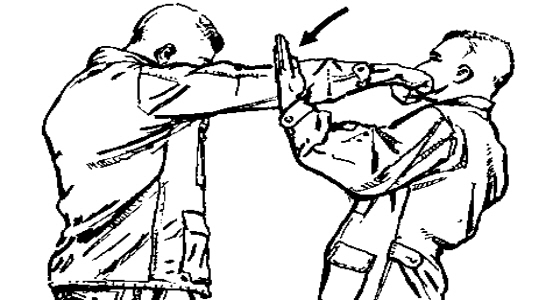
Jamie: "I don't want to go into detail but I've seen people tortured; some justified, some not. That's the worst thing I've ever seen."
DW: "What makes men violent?"
Danny: "All of the things we've just been talking about. Pride; wanting respect; defending territory; genetics; alcohol."
Jamie: "That's simple; they are bullies. They are only violent towards those who accept it. If I walk up the road and a guy punches me and I do nothing in response; then the next day I'll get punched again. However, if I give that guy a visit at 4:00am and put a sledgehammer across both of his shins, then smash both his hands to pieces before he can even wipe the sleep out of his eyes; I guarantee the punching will stop. Maybe a bit extreme, I know but, as they say; 'That's how I roll'. Sadly, many women are abused for years by men and when they finally snap, the Law doesn't support the females. So, in my opinion, men are violent because they get away with it. It's nothing more than bullying."
DW: "Can a person ever truly change? Can a violent / racist / homophobic, person ever truly change their opinions and beliefs or would such changes be a façade?"
Danny: "I think they can but I think it would take a major episode to. If it's someone who was racist, it would take something like a black person saving their life to make them think differently. It makes me laugh when you hear people say; "I'm not racist but...' You know that they are racist, as soon as they say something like that. As for people who are violent, I think that taking them away from their environment and placing them somewhere where they're not surrounded by drugs, violence, poverty, etc, can help change their outlook on life and help mellow them. I'm sure that if you took some of these inner-city kids and put them in a nice green suburban town, they'd change."
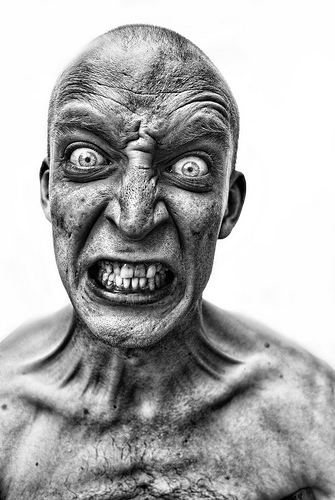 Jamie: "I believe some people can change but only when taken out of their nurtured environment. You need to have natural exposure to others you don't normally associate with, to be able to accept that they may be 'OK'.
Jamie: "I believe some people can change but only when taken out of their nurtured environment. You need to have natural exposure to others you don't normally associate with, to be able to accept that they may be 'OK'.If you work in the Public Transport environment or the Care Sector, etc, where you're with people from all ethnicities and all walks of life every day, you will find a different world and will learn about people. However, you may find that by doing this and realising that your views are changing, you are creating a gap from you and your own family, due to them being stuck in a time warp.
[Author's Note: Several months after this interview took place Danny was attacked in a local pub by an unknown assailant, in a motiveless assault.Danny's nose was broken and he received lacerations from the glass which was smashed in his face as he stood talking to a friend, who was also assaulted.The assailant ran out of the pub but was subsequently arrested and imprisoned.]
['ESSENCE OF A MAN', by David Weeks, is available via Amazon.com or Kindle. ISBN 9781468072815 ]



